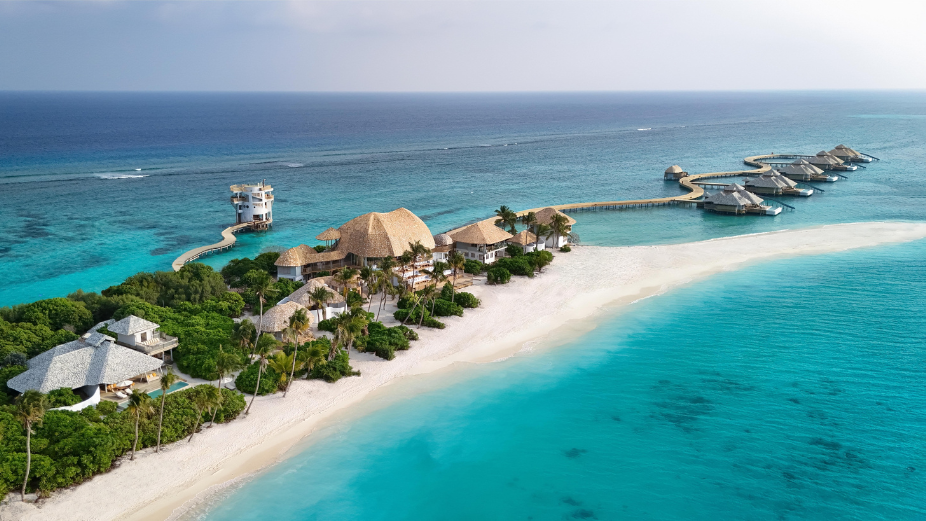
By Sonu Shivdasani, CEO of Soneva
As someone who has long admired and invested in the Maldives, I offer my thoughts today not as criticism but as a reflection born from my deep affection for this beautiful country and its people.
My wife Eva and I opened Soneva Fushi in 1995 — at the time, the Maldives’ first luxury resort. Since then, we have made Baa Atoll our home, dedicating our lives to luxury hospitality and sustainable development. Our experiences here, both personal and professional, have only strengthened our desire to see the Maldives thrive in a way that benefits everyone.
Recent government initiatives, though, give me pause for thought, and I believe it’s important to reflect on their potential impact as the nation charts a course for future growth. Specifically, the new requirement for resorts to exchange USD 500 per guest into Maldivian Rufiyaa, along with proposed increases in taxes such as the Green Tax and GST, merit a closer look. These measures are clearly intended to strengthen national revenues, but their timing amidst a fragile global economic environment might lead to unintended consequences.
Over the past several years, the Maldives has flourished on the back of strong investor confidence. Its pristine beaches and renowned luxury resorts have captured the imagination of the world, leading to significant inflows of capital. In 2019 alone, the Maldives attracted over $4 billion in foreign direct investment, contributing significantly to its GDP growth of 5.7% that year. However, the global economic landscape has changed dramatically in recent times. The war in Ukraine, rising interest rates, and inflationary pressures have led to greater investor caution and less liquidity. In the first half of 2023, foreign direct investment in the Maldives saw a decline of nearly 20%, reflecting these global challenges. Amid this backdrop, the Maldives already faces an oversupply of new hotels and resorts, and investors are now reassessing their commitment to new capital expenditures.
Introducing foreign exchange restrictions at this time risks reducing the Maldives’ attractiveness as an investment destination. Dampening investor appetite could stifle future growth, ironically limiting foreign exchange earnings — the very goal these regulations are meant to protect.
Similarly, the proposed tax increases need careful benchmarking against other successful economies. The UAE, for instance, has a VAT rate of 5%. Larger economies like China use tiered rates, ranging from 6% to 13%. On the other hand, countries facing prolonged economic challenges, such as Argentina and Hungary, have VAT rates as high as 27%, which correspond with economic struggles and reduced competitiveness.
To put the proposed increases into perspective, the Green Tax for tourists in the Maldives is set to increase from $6 per night to $12 per night, representing a 100% rise. Similarly, the GST is planned to increase from 16% to 17%, which would make it one of the highest in the region. High GST rates can make the Maldives less appealing as a destination, especially compared to lower-cost tourism markets. According to a survey conducted by the Maldives Association of Tourism Industry (MATI) in 2023, 67% of respondents indicated that rising costs could deter them from choosing the Maldives for future holidays. Guests increasingly voice concerns about the rising costs here, which make alternative destinations appear more affordable. While increasing revenues is a noble goal, we must consider whether these higher taxes could ultimately reduce tourist numbers and, with them, overall economic benefits.
Furthermore, these tax increases are likely to have a disproportionate impact on guesthouse tourism in local islands that typically attract lower-income guests. The guest house segment has been a crucial driver of community-based tourism in the Maldives, offering more affordable options for budget travelers. By raising the Green Tax and GST, these small businesses may struggle to remain competitive, reducing the income opportunities for many Maldivian communities that rely on this sector. According to data from the Ministry of Tourism, guesthouses accounted for approximately 25% of all tourist accommodations in 2022. If these smaller establishments face financial challenges due to higher taxes, it could undermine efforts to diversify tourism and ensure its benefits reach all segments of society.
I wholeheartedly support the government’s efforts to strengthen the Maldivian economy, but caution against short-term measures that might undermine long-term growth. The success of the Maldives has largely been built on fostering an investor-friendly environment and offering a competitive, high-value tourism experience. Preserving that balance is crucial if we want to ensure continued prosperity.
The government’s goals are admirable, but I urge a careful approach. By considering the broader impact of these measures and adjusting where needed, we can ensure the Maldives remains a beacon of prosperity for many years to come.












